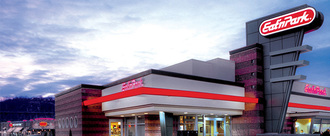-
Matchbox: Respect Your Workers' Rights to Organize!Background: Ana Hernandez, Altagracia Reyes, Alejandro Roman, Lucas Efrain, and Angel Morales were all fired from their jobs at Matchbox throughout March, 2017. They believe that they were fired in retaliation for taking concerted action to protest unfair working conditions and have organized to take community and legal action. Read their testimonies below and add your signature in support! (Ana Hernandez, Altagracia Reyes, Alejandro Roman, Lucas Efrain, y Angel Morales salieron despedidos de sus trabajos en Matchbox en varias fechas en Marzo, 2017. Creen que han sido despedidos en represalia organizarse para protestar condiciones laborales injustas, y se han organizado para tomar acción comunitaria y acción legal. Lean sus testimonios aquí y agregue su firma en apoyo!) TESTIMONIES: Ana Hernandez: "I had been working for Matchbox in the kitchen for nearly 8 years when I was fired. I worked at Matchbox Chinatown for the majority of the time, until March 1, 2017, when they told me that I had to accept a transfer to Pentagon City or I would not have any more work. As soon as I started at Pentagon City, I saw the amount of abuses that there were there. There was no break, we didn’t eat all day, we didn’t even want to drink water because there wasn’t any time to go to the bathroom. The list of tasks for the prep workers is so long that I was never allowed me to leave on time to go to my English classes at night. I started a petition and asking my coworkers to sign to demand better working conditions. I had gotten eight signatures, when the sous chef asked my coworker Alta why I was asking for signatures. Three days later, the chef called me and said that he wanted to talk to me. The next day, after my shift, the chef called me over and fired me." Altagracia Reyes: "I have worked in the kitchen at Matchbox on various occasions since 2006, in Chinatown and Pentagon City. When I started at Pentagon City, they increased the amount of work and started being disrespectful. I signed Ana’s petition because I agreed with the goals. The day after Ana was fired, I had to defend my coworker, because she was being given too much work and she is a pregnant woman. I asked the chef to give us more staff to help us with the prep work. My coworker started to cry and explained to the chef that her doctor says the baby is underweight and that she isn’t allowed to eat all day. I stood up for her, but the chef said that it didn’t matter to him neither if anyone is pregnant or if we use the bathroom. The next day, I went with three coworkers from Matchbox to the corporate office. We told the president of the company about the abuses that we were experiencing in his restaurant. But the next day the chef sent me a text that just said, 'No más trabajo (no more work).'" Alejandro Roman: "I have worked in the kitchen at Matchbox Chinatown for seven years, without a break and without a vacation. In January, they started changing us around to different stations, without training us or asking us, and they started to fire people, reducing the amount of staff working at each station and increasing our total amount of work. On the Day Without Immigrants, on February 16, we all agreed to participate in the strike. The chef called us to him individually and asked us if we were going to work that day. It was my day off, and when he asked me to work that day I told him I couldn’t. Two weeks later, the chef changed our stations around again. He put my coworker, Angel, on the station making dough and on the oven. I helped Angel tell the chef in English that he couldn’t work at that station, because he didn’t have the necessary training and because the heat from the oven hurts his eyes. The chef said, “I don’t care.” I told him that he needed to be respectful of his people. I told him that I was going to go and speak with his superior, and he immediately gave me a punch card, and told Angel and I, and our coworker Efrain, that we were fired." Angel Morales: "I’d worked about two years in Matchbox before I was fired. When I heard about the general strike on February 16, I decided to participate with my coworkers. When the chef asked me if I was going to work that day, I told him that I couldn’t because I was participating in the Day Without Immigrants. Two weeks after the strike, they moved me to a different station, they sent me to make the dough and to put the pizzas in the oven. Besides that I don’t know that station, I also have a problem with my eyes and it’s damaging to them to be in front of the oven. I asked my coworker Alejandro to help me explain to the chef my problem in English, and the chef said that it didn’t matter and that I had to do it. I told him again that I couldn’t, and he fired me. That was when Alejandro argued with the chef, and they ended up firing all three of us." Lucas Efrain: "I started to work at Matchbox in 2012, left in June, 2014, and started to work there again in December, 2016. Before the Day Without Immigrants, the chef asked us individually if we could work that day, and I told him that I couldn’t. He asked me why, and I told him because I was going to support the Day Without Immigrants. “If you don’t work, I will take other measures,” he said. About two weeks later, when I got to work in the morning the chef sent me to work on the salad station, although I am always on the fry station. I told him that I didn’t know how to prep the things for the station, but that when all the ingredients were filled, I could take the tickets because I knew how to make the salads. He said that it didn't matter, that I had to work there. I can’t, I said. While this was happening, the chef was also arguing with Alejandro. He said “bye” to all three of us, and were were all fired together. We aren’t the first nor the last people suddenly fired unjustly. They have a pattern of firing people without any justification. Many people have been fired."1,726 of 2,000 SignaturesCreated by Ana Hernandez
-
Let concession workers keep their tips!The US Cellular Center hosts amazing performers that draw big crowds of drinking patrons. Annual events like Warren Haynes Christmas Jam and the SoCon Basketball Tournament bring returning patrons. These visitors develop lasting memories based on their yearly trips to our scenic mountain town. The City of Asheville runs the US Cellular Center and the Thomas Wolfe Auditorium. Patrons of both arenas can order food, soda, cocktails, beer and wine at concession stands located throughout each venue. Alcohol sales are high during these big events and require responsible alcohol service and bartenders that know how to hustle. Ok, so imagine you’re at one of these shows and you find yourself thirsty for a cold one. You pay for your awesome, local craft beer. You leave $1 or $2 a for the person who poured your beverage. Do you assume your $1 is for the person who served you? Workers that are busy pouring beer, making change and managing the crowds are forced to tell you they can’t accept your kind tip. This holds up the line for service and patrons are often confused and annoyed. Sometimes guests insist and walk away. Workers were made to sign a document acknowledging that if they were caught accepting any tip, they could be fired. Of course, we know good folks still leave tips for direct service. Sometimes there are tip jars out, sometimes not. At the launch of this campaign, workers report they receive NO CASH TIPS even as they are being collected. It’s bad customer service if patrons want to tip and can’t. It is also a combative policy to workers that fear job loss if they accept a tip. We need tip transparency at the US Cellular Center/Thomas Wolfe Auditorium and these workers deserve their tips. Join our campaign by signing this petition for change. Thanks for your support!!4,171 of 5,000 SignaturesCreated by Alia Todd and Samantha Simpson
-
Retail Workers need $15 and full-timeAaron Lawson, Dollar General, Williamsburg, OH I’ve worked at Dollar General now for eight months. I make $8.15 an hour and struggle to scrape enough money together just to eat each week. Because my hours fluctuate from ten to 25 hours each week I can only worry just about basics, keeping a roof over my head, my bills and making sure I have a frozen dinner waiting for me at home when I get off work. I walk to work everyday but if I made $15 an hour with consistent, fulltime hours the first thing I would do is buy a car and get a driver’s license. The freedom of having a car and being able to go anywhere would be amazing. ---- Regina Mays, Walmart, High Point, NC My name is Regina Mays and I make $11.05 an hour after almost 6 years at Walmart. Often, I’m only scheduled for 32 hours each week but I’ve gone weeks with no hours. Not knowing what I’ll get from week to week makes it almost impossible to budget. What’s more, I have two children with special needs that are my world and inconsistent schedules make it a constant struggle to be able to provide for them. If I made $15 an hour with consistent, full-time hours I would be able to afford a more reliable vehicle. My van breaks down on the way to work but I can’t afford a new one. All I want to be able to do is serve my community by working at Walmart and be able to provide for my family. Is that too much to ask? ---- Becky Lam, Victoria’s Secret, Texas I’ve been with Victoria’s Secret for eight months and I make $10 an hour. I like my job but it’s tough to get consistent schedules. They are changing all the time and often last minute. If you miss a shift you get written up. If I made $15 an hour and had consistent, full-time hours I would be able to pay off more student loans. I just completed my first year of college and already have a lot.1,865 of 2,000 SignaturesCreated by Trish Rose

-
IBMers to CEO Ginni Rometty: Affirm IBM values!Dear Ginni Rometty: In response to your open letter to Mr. Trump [1], we are disappointed that you did not reaffirm the core values which differentiate both IBM as a company and us collectively as IBMers. While we understand your willingness to engage in constructive dialogue with the president-elect, we believe our shared culture and values remain not only constant, but also central to our transformation underpinned by cloud and cognitive initiatives. As you know, more than 400,000 IBMers around the world work in environments where diversity—including diversity of thought—is the norm. IBM values this because our diversity helps create innovation that enhances every aspect of our business. Your internal memo to employees, advocating diversity and the open exchange of ideas, echoes IBM President Tom Watson’s Policy Letter #4 [2]. Watson’s letter reaffirmed IBM’s moral leadership by refusing to discriminate on the basis of race, resisting the prevailing attitudes of governors in the southern United States. In this instance, Watson sacrificed short-term business interests in order to be on the right side of history, something IBM takes pride in today. IBM’s leadership in this domain is more essential than ever. If we cannot boldly and openly affirm our commitment to diversity, then who are we? The right thing to do for IBM workers and our stakeholders—which includes every person on the planet touched by our technology—is to emphasize this in writing to public officials. Yet writing is not enough. We have a moral and business imperative to uphold the pillars of a free society by declining any projects which undermine liberty, such as surveillance tools threatening freedom of speech, freedom of assembly, and freedom from unreasonable search and seizure. The kinds of moral decisions you and our senior executives make in the next four years will define our corporate character for our next century. This will be your legacy. Taking a conservative approach has grave implications. Our own founder’s experience and the rest of history teach us that accommodating those who unleash forces of aggressive nationalism, bigotry, racism, fear, and exclusion inevitably yields devastating outcomes for millions of innocents. IBMers are members of a global family without borders. Hostile rhetoric towards immigrants, Muslims, Latinos, LGBT people, and others impinge on our core values of tolerance, diversity, and open exchange of ideas that are essential for innovation and our ability to recruit top talent. In this present context of insecurity and unpredictability, we also share deep concerns about recent reductions in benefits programs. This has consequences on the morale, retention, and well-being of long-term IBMers, especially those affected by our company’s transformation. For our mutual aid and protection, we petition you to do what is right for IBMers, our business, and society, on the basis of equitable treatment and fairness: (1) Respect our right to refuse participation in any U.S. contracts that violate constitutional and civil liberties. (2) Expand our diversity recruitment programs specifically targeting women, people of color, and LGBT people with the goal of doubling recruitment of these groups in 2017 and steadily increasing the share of these groups as a proportion of new hiring in subsequent years. (3) Prohibit perceived influence-peddling of elected officials by restricting IBM and its employees from using any Trump owned or Trump branded properties for business purposes, in accordance with the IBM Business Conduct Guidelines. (4) Treat established workers with dignity by restoring the 2015 Individual Separation Allowance Plan that provided severance based on years of employment instead of the current one-month severance plan for all employees, regardless of time served. (5) Make IBM retirement plan contributions equitable by restoring company 401k match contributions to regular pay cycles instead of a one-time, year-end contribution that is contingent on being employed as of December 15 of the calendar year, which is not fair to employees who are laid off before that date. As IBMers, we strive to be engaged citizens of the world; innovating how we think and work; collaborating across cultures, time zones, and borders; and, in doing so, we make a positive impact locally and globally. While our differences shape who we are as individual IBMers, our shared corporate culture and values remain central to our success. We petition you to affirm this identity, and we thank you in advance for your leadership and courage in the years ahead. Respectfully, Your fellow IBMers, past and present [1] https://www.ibm.com/blogs/policy/ibm-ceo-ginni-romettys-letter-u-s-president-elect/ [2] https://www.youtube.com/watch?v=PByaqDeBEzE2,463 of 3,000 SignaturesCreated by IBMPETITION. ORG
-
Pricecutter Lack Of Hours & Low WagesStarbucks Licensee stores inside of the the Pricecutters are given little to no hours. The employees usually end up hating their lives because they spend 6-10 hours a day alone with long lines for long periods of time. They are not given any extra help! Also Pricecutter doesn't hire people on high enough wages no one can survive in this day of age with the pay they give out.3 of 100 SignaturesCreated by Scottaaron Gardner
-
Tip Transparency and HonestyThe livelihood of many workers is at stake. It is part of the somewhat loosely regulated gig economy and this move by Instacart is allowing unfair practices in labor and is affecting the lives of thousands of diligent workers who are unable to make nearly the wage they were previously before the change.121 of 200 SignaturesCreated by Instacart Alliance
-
Ask Kohl’s to follow the lead of Twin Cities retailers & implement a Responsible Contractor PolicyMy name is Esteban Miranda and I am a member of Centro de Trabajadores Unidos en Lucha (CTUL). I work for Kimco Services cleaning a Kohl’s store in the Twin Cities. I am fighting for retail janitors to have a fair wage so I can realize my dream of paying off my house. Right now, my wages are so low that I can just barely make my home payments. If I do not make a better wage, I will always live with the stress and fear of missing a day of work because of an illness or emergency. I do not have any paid sick days working for Kimco, so if I get sick I am at risk of missing a home payment and even losing my house. Retail janitors organizing with CTUL have won responsible contracting practices from most major retailers ensuring fair treatment for janitors. This will provide stability and security for roughly 600 retail janitors throughout the Twin Cities. Kohl’s is one of the last retail stores that is turning a blind eye to their janitorial subcontractors paying poverty wages and providing us with no benefits. In the Twin Cities, Target, Macy’s, and Best Buy have all decided to contract responsible contractors, but Kohl’s continues to ignore our requests. I am part of a group of workers fighting to raise standards in our industry because my family and I deserve to have safe and stable housing. Myself and other Kimco janitors have announced that we will be taking action during the holiday shopping season, online and in the streets on Cyber Monday and November 29th.234 of 300 SignaturesCreated by Esteban Miranda
-
Trip requests outside airport queue while in airportWe will receive random text alerts telling us to head over to airport staging area! Once we drive all the way over there, pay the toll, wait several minutes and just before we are next in line we get a trip request that causes us to leave the airport, lose the money we paid in tolls and the time we waited for our airport run is wasted, and if we do not accept the request, it ruins our acceptance rating and if you do not accept 2 in a row the system throws you off line for 10 minutes causing us to lose all that time and to get in the back of the rotation! If we accept the request and cancel it ruins our rating and keeps us from certain promotions! The fact that I drove to the airport demonstrates that I want an airport trip, if I wanted to pickup trips outside the airport I would leave the airport and turn on the app!59 of 100 SignaturesCreated by Jeff Forsyth
-
Give Eat'n Park Employees a RaiseWhen I was seventeen years old, I got my first job at a local diner. I enjoyed the busy restaurant environment and could see myself working in this industry for years to come. Fast forward ten years later, management experience, a bit of college under my belt, and I'm still working in the restaurant industry. Sadly, my passion and love for the industry has faded rather quickly all due to my current employer: Eat'n Park. I was 36 weeks pregnant when I was hired at Eat'n Park. To their credit, they were very accommodating with my pregnancy needs and schedule, but I started to notice some things that had me question my employment there. After a typical eight hour shift, we're lucky if we walk out with twenty dollars in our pockets. That's because we're paid the petty wage of $2.83/hour - a wage that hasn't been raised in nearly twenty years, and rely exclusively on widely fluctuating customer tips. We are also often burdened with additional non-tipped work and sometimes forced to give up our tables if the shift supervisor (who makes four times the amount we do) decides that they want some extra money. As a result of the low pay and unfair working conditions, we can't keep staff. Since I started earlier this year, a majority of the people that I trained with have all quit. It's worth noting that the majority of Eat'n Park servers are women, many of them mothers. They're trying to raise a family off the tips and a $3.99 breakfast special. Let's do some math on that one; a 20% tip (considered what people typically tip for excellent service) is a paltry 80 cents. It should come as no surprise that when my coworkers have children (including myself), they can't afford to take much time off work. I managed to take two weeks off after having my son, Connor. Unfortunately, there are many others who can't afford that. The most infuriating part is that what I've shared is only half my story. Arguably the hardest job at Eat'n Park is working in the back of the house. Some of these hardworking guys and gals only make $7.25/hour and haven't seen a raise in YEARS. Let me finish by saying that we support and applaud Eat'n Park for making a genuine effort in being a good community partner, but they need to recognize that we, their employees, are also members of the community. They need to fairly compensate the staff before they run a sophisticated PR campaign to make themselves look good in Pittsburgh. Finding a decent job is tough, it's tougher when we're working full-time and not making any money. We can hustle our whole shift to make sure that our managers and customers are satisfied, but still only leave with a few dollars in our pockets. Something has to change and it has to change NOW. I want to see my fellow employees succeed in life and be secure in their financial and personal lives. I want our back of house employees to FINALLY be rewarded for their work with a raise. Help me bring equality to my fellow co-workers and get some much needed change to our restaurant industry.4,130 of 5,000 SignaturesCreated by Jenn Ozechoski

-
I Support A Salary Increase for Environmental Compliance Specialists.This is important because there is a hiring and retention issue of quality Environmental Compliance Specialists at MDE.2 of 100 SignaturesCreated by Katy Annulli
-
Coffee Tree: Stop Violating Basic Workers' RightsThis is a cry for workplace fairness at Coffee Tree. Employers have been utilizing intimidation tactics, shaming and manipulation, and retaliation to rob workers of their basic rights for too long, often taking advantage of employees' lack of familiarity with these work laws. Now is the time to cease these activities. Outlined below are the concerns and clear violations of workers' rights: STOP DENYING PAID REST BREAKS. (Under the ES.C.6 Meal and Rest Periods - Employees are entitled to a minimum 10 minute rest break for each 4 hours worked. The rest period of time must be scheduled as near as possible to the midpoint of the four hours of working time. No employee may be required to work more than three consecutive hours without a rest period). Employers have been exploiting the loophole ("if the nature of the work involves several intermittent rest periods equal to ten minutes, a rest break is not required") to deny workers a 10, even when workers have been working continuously. It's also important to note that the ES.C.6 specifies that a series of ten 1-minute breaks is not sufficient to meet this requirement. Many of us will experience shifts where we work longer hours than we were scheduled for, work continuously, and are entitled to a ten minute break but are either not made aware of this right, or are strongly discouraged from exercising this right. The restructuring of a workers' schedule into double 3.9 hr shifts as punishment for insisting on his or her 10 minute break, while not unlawful, is cheap and abominable. This redesigning not only limits the overall breaks for an employee during an entire workday, but also results in less employee satisfaction and production. Similarly, comparative shaming as a tool to discourage one or more employees from taking rest breaks creates a negative environment where employees don’t feel valued or secure. Employers must honor the work and time of an employee as evidenced in person or in surveillance which entitle the worker to his/her paid break. STOP TRYING TO RESTRICT BATHROOM ACCESS. According to DOSH, restroom breaks cannot be restricted (within reason) and do not count as a paid 10 minute rest break, though employees may choose to use the bathroom on their paid break. This is a basic health and safety right. Intimidating workers by recording length of bathroom breaks and using it as negative commentary in an employee file is despicable. STOP RETALIATING AGAINST EMPLOYEES ADVOCATING FOR THEIR RIGHTS. Concerted activity (activity done to address health/safety concerns or to improve the workplace conditions) is protected from acts of retaliation (firing, cutting of hours, creating unnecessary write-ups, wage/tip deduction). As an employee currently suffering a suspension from positive workplace actions, I am pushing for awareness that this action is not appropriate or legal. STOP UNLAWFUL WAGE DEDUCTIONS. In the training phase, we are told that cash drawer shortages, damage to the store, or excessive waste will result in our wages or tips being garnished to fill those losses. According to the Washington State Legislature (WAC 296-126-025): The only time a workers’ income (hourly wage and tips) should be garnished is with court orders, with a personal agreement with keeping a tab in the workplace, a loan, or some other extenuating circumstance. Cash shortages in tills, and accidental waste/breakage are specifically pointed out as being unlawful reasons for wage deduction. In addition, the employers have never been held accountable and continue to seize half of worker earned tips for themselves. Under FLSA, managerial and professional positions are not eligible to take a cut of tips from tipped employees. Coffee Tree employers must observe these laws, return money unlawfully taken from employees in the past, and cease this procedure altogether. Protecting quantifiable losses of the stores (time and money) at the expense of the businesses' most valuable commodity, the workers, is not lawful or virtuous. Let us strive not only for great coffee and customer care, but also great care of employees. Let us recognize when breaks are warranted. Let us thrive together.300 of 400 SignaturesCreated by Jhenn Whalen
-
Raise fares back to early-January 2015 levelsAside from the obvious impact to what we make as drivers, it seems to me that less drivers are on the road now due to the lower fares. This causes higher drive times to initial pick ups as well as in increase in surge rates. While the surge rates would seem to benefit us, the fact that we are travelling longer distances offsets that and more surges is not good for the consumer. Also, while not explicitly stated, it was implied when fares were cut that this was to combat the winter drop in usage.153 of 200 SignaturesCreated by Walt Guzman
Quick Links

Quick Links


.JPG)




.jpg)





.jpg)